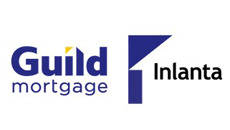Mortgage 101
Since there are so many components to the mortgage process, we have taken special care to organize the most important qualifying steps, lending frequently asked questions, home buying and mortgage processes below.
We realize that that the information contained in this site could literally take you weeks to research and digest, so please contact us at any time for a personal consultation where we can address your specific needs and questions.
Get our Free Mortgage 101 Guide for Expanded Topic Information
1. Mortgage Basics:
What is a mortgage, and who owns my home if I have secured financing to purchase it?
Whether you’re new to the home buying process, or a seasoned investor, I bet you didn’t realize that there are at least 20 top mortgage-related terms that you may want to understand prior to speaking with a real estate agent or loan originator.
This section highlights some of the basic math and topics of interest that will help you get started on your home buying and financing journey.
2. Mortgage Approval Process:
Required down payment, income / employment information and credit standing are a few of the important factors lenders look at when considering a borrower for a mortgage loan approval.
There are several questions that a loan originator needs to ask before a simple pre-approval letter can be issued. But more importantly, there are at least 8 top questions that you should be asking your lender before taking any steps to fill out an application.
Being prepared with the proper documents and personal information will allow you to spend more quality time with your loan originator addressing the important points of your pre-approval and mortgage program options.
3. Understanding Your Credit:
Your credit picture plays a key role in the mortgage approval process, and it is essential to understand how scores are measured and calculated.
Should you close all cards or keep them open? What if you don’t have any credit history that shows up on a report, is there a way to use other alternative monthly bills and/or build credit in a timely manner?
In this section, you’ll learn the basic rules about preparing your credit standing prior to speaking with a lender for qualification.
4. Mortgage Payments:
In addition to mortgage rates, there are many other obligations that factor into your overall mortgage payment.
HOA Dues, Hazard Insurance, Property Taxes…. to name a few.
It helps to be aware of the expenses involved in owning real estate in order to set a monthly budget that is true to your financial goals and expectations.
5. Mortgage Rates:
Mortgage rates can fluctuate several times a day, and are influenced by many factors that are out of the loan originator’s control.
Determining if you’re getting the best deal at any given moment boils down to whether or not you trust that your preferred loan originator is truly looking out for your best interests.
Fortunately, there are economic indicators that impact the typical movement of interest rate markets which you can be aware on a daily basis. When the media reports that the Fed is moving rates down, it always seems that home loan rates go up. What about the points vs no points, and APR?
6. Mortgage Programs:
It’s amazing how many mortgage programs have been designed to help First-Time Borrowers get financing on new homes.
Before you start shopping for a listing that fits your living needs, it would be extremely beneficial to know what type of lending scenario best fits the type of property or neighborhood you’re looking to buy in.
With regards to a refinance, you may actually qualify for a new government-sponsored program that has been designed with current market conditions in mind.
7. Home Buying Process:
What comes first – the approval or the purchase contract?
Once you have weighed the basic pros and cons of owning a home vs renting, tax benefits and timely market influences, assembling a winning team of real estate and mortgage professionals will help you cover all of your bases.
There are also some very important time lines that you’ll need to be aware of, such as an appraisal, home inspection, and loan approval dates.
Can the type of Home Owners Association affect your loan approval? Absolutely.
If you’re feeling a little anxious at this point, then that just means you’re actually taking this home buying thing seriously.
Don’t worry, we’ll make sure you are kept in the loop throughout the entire home buying process.
8. Closing Process:
With the right home buying team on your side, the closing process should be a smooth transition from signed documents to a closing celebration.
The excitement has been building throughout the entire process from home shopping to mortgage approval; so it’s easy to overlook some important details at the end.
Understanding the industry lingo will certainly help you avoid feeling like you’re on a roller-coaster while all the team players come together at the end to ensure pre-closing conditions are cleared, final docs are in order…
It also helps to know about all of the fees associated with a new home purchase or refinance. Understanding the difference between the fixed and variable fees will help you set a more accurate budget.
9. Refinance Process:
Properly estimating neighborhood property values and your closing costs will help determine the net benefit of a refinance transaction.
Some homeowners just want to know the best approach of finding money to make home improvements, while other borrowers are in a situation where their rate is adjusting.
Either way, it’s easy to get caught off guard if you don’t have the essential knowledge about your mortgage refinance options.

